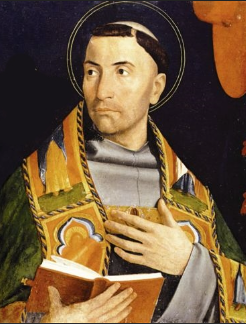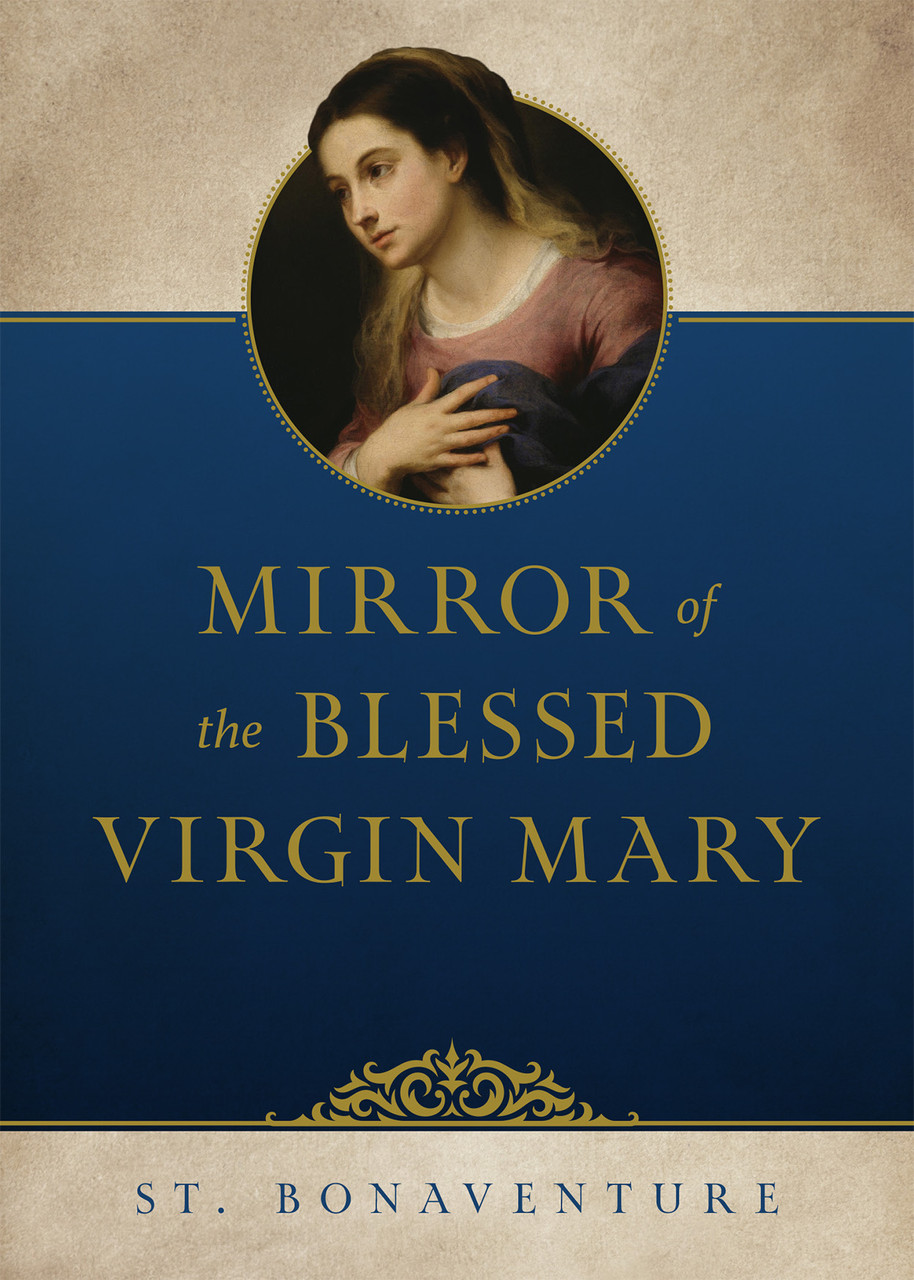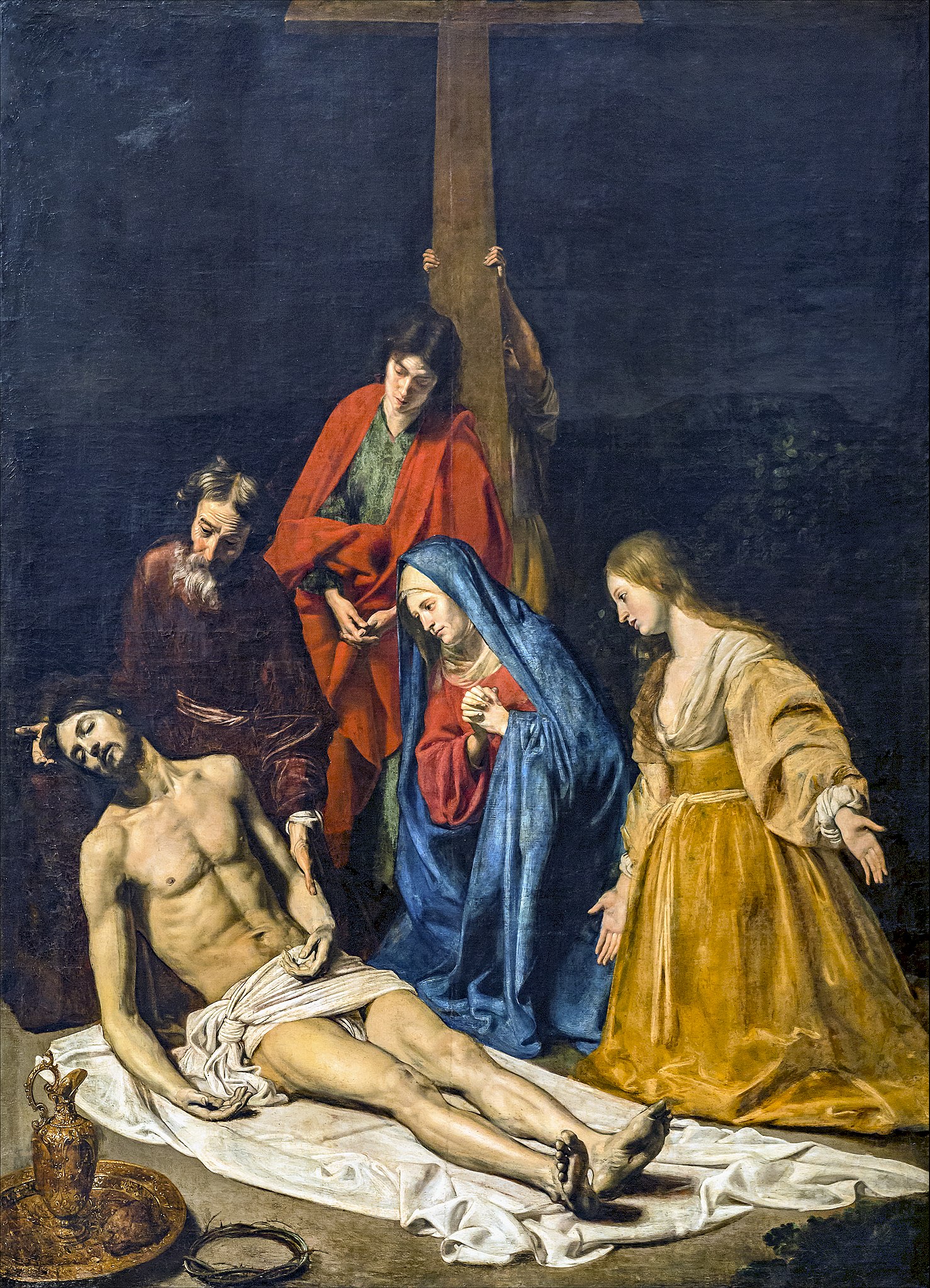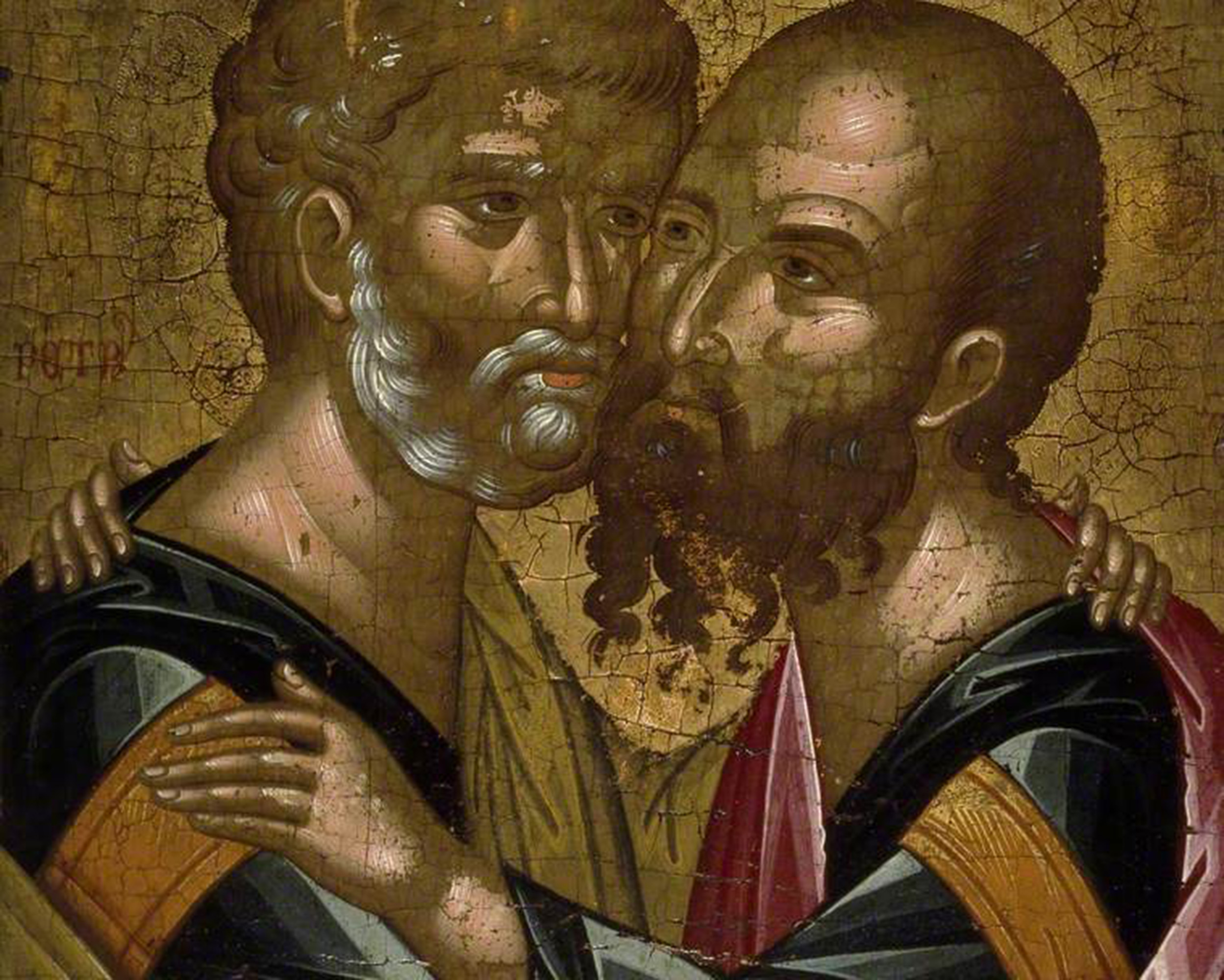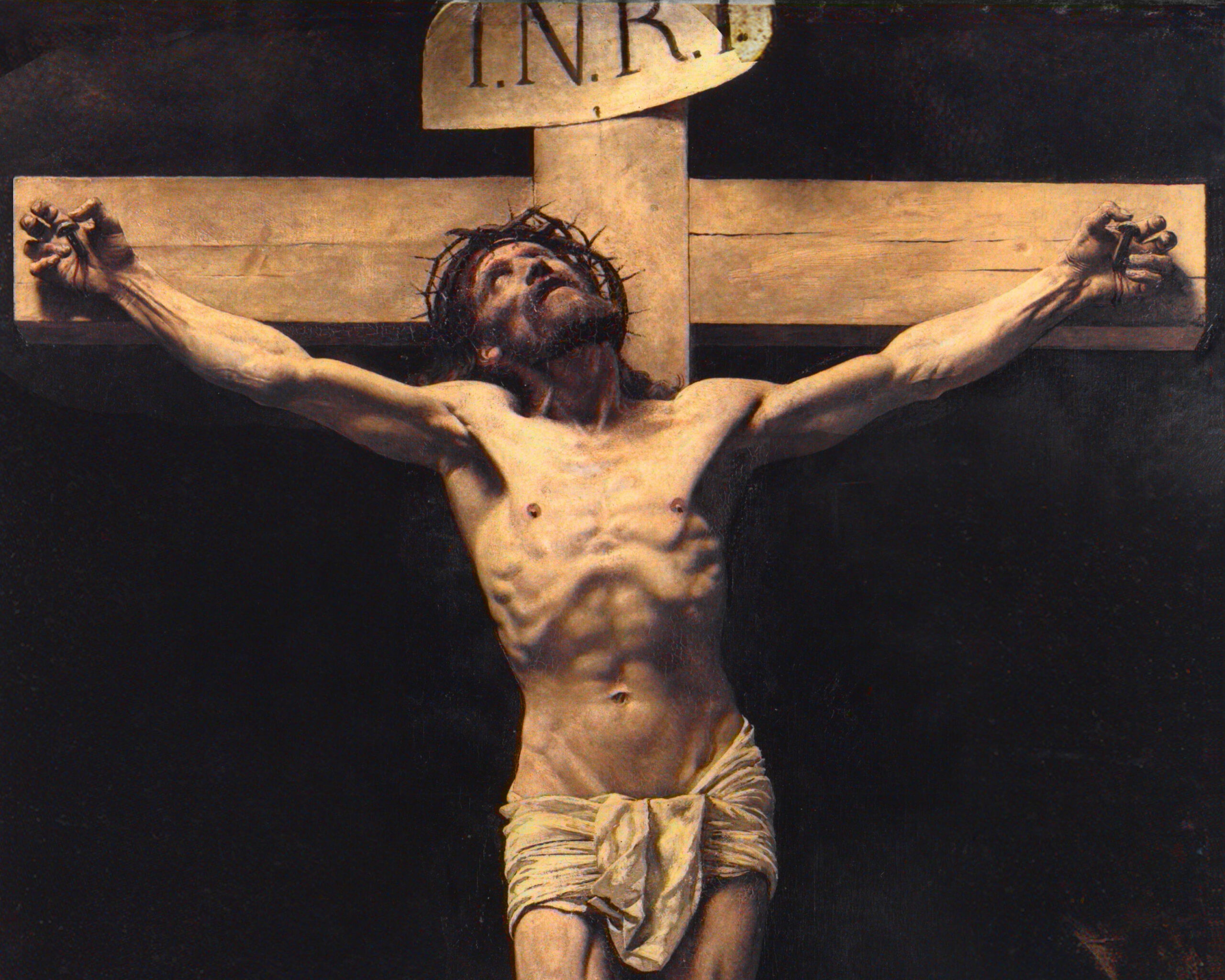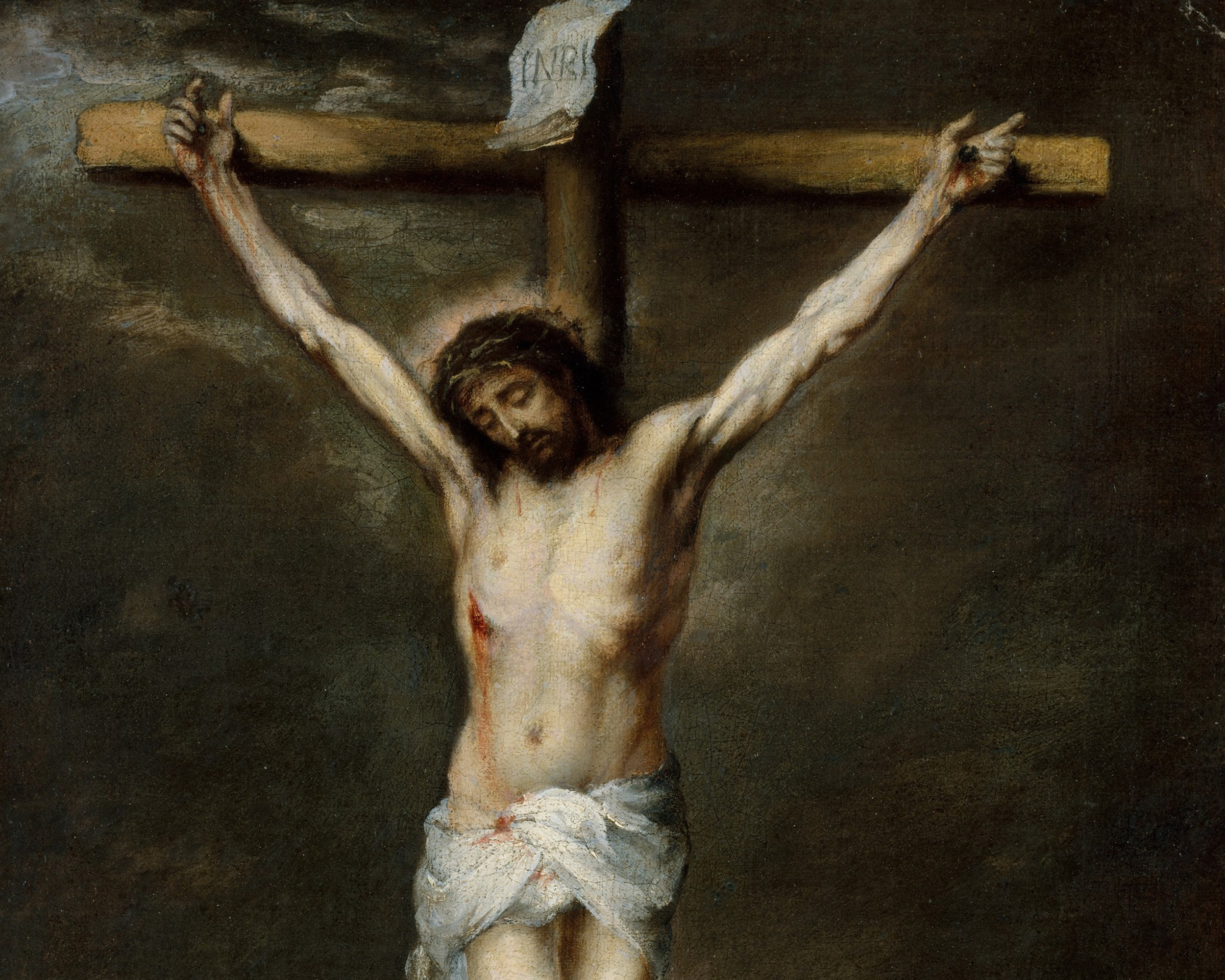In Mirror of the Blessed Virgin Mary, Saint Bonaventure, the “Seraphic Doctor,” offers a profound investigation into the Blessed Virgin Mary’s distinctive role in humanity’s redemption. Learn how Mary is the “Rod from the root of Jesse” in this excerpt taken from the work.
Mary, a Royal Rod
“The Lord is with thee.” Having seen how the Lord was with Mary, as the sun is with the dawn which goes before it, let us now see how the Lord is with Mary as the flower is with the budding stem. For Mary is that rod of which it is said in Isaias: “There shall come forth a rod from the root of Jesse, and a flower shall ascend from that root, and the Spirit of the Lord shall rest upon Him, the spirit of wisdom and of understanding, the spirit of counsel and of fortitude, the spirit of knowledge and of piety, and He shall be filled with the spirit of the fear of the Lord” (Is. XI.) Let us place these words before the eye of our mind, and direct our consideration first to the rod and then to the flower.
First consider, that this rod, this royal rod, is the Virgin Mary, as St. Ambrose testifies, saying in speaking to the Blessed Virgin: “Thou thyself, who hast brought forth the Lord, art of the land of Israel; thou hast grown into a rod, the rod from the root of Jesse; thou hast arisen and flowered, O rod of Aaron; thou hast flowered and brought forth.” For Mary is a rod smoking with incense, a rod of wood, a rod of gold, a rod of iron. Mary is a rod smoking to beginners, a rod of wood to those who are advancing, a rod of gold to the perfect, a rod of iron to the incorrigible and the demons.
A Smoking Rod
I say that the Virgin Mary is as a smoking rod to beginners and to penitents. Of this rod it is said in the Canticle of Canticles: “Who is she that cometh up from the desert, as a pillar of smoke of aromatical spices, of myrrh, and frankincense, and of all the powders of the perfumer?” (Cant. III, 6.) The desert is the heart of the sinner, which is indeed devoid of grace and virtue. The aromatical spice, the sweet incense of the soul, is the aspiration of hope for pardon. The Blessed Virgin Mary, therefore, came up from the desert as a pillar of smoke, when, by her prayers, the heart of the sinner received the smoking incense of pardon. This smoke is generated from the aromatical myrrh of contrition, and of incense in confession, and from all the powders of the perfumer in manifold satisfactions. No desert doth the Virgin Mary abhor, no sinner doth she despise; but wherever she passes, she spreads the sweet incense of pardon. Excellently, therefore, does St. Bernard say: “Thou dost not abhor or despise any sinner, however foul, if he but sighs to thee, and begs with a repentant heart for thy pardon; thou drawest him from the abyss of despair with thy loving hand, thou breathest upon him the remedy of hope, and embracest him, the outcast of all the world, with maternal affection, thou cherishest him and dost not desert him, until he is reconciled with the tremendous Judge.”
The Rod of Wood
Again, Mary is the rod of wood, the rod which is flowering to those who are advancing. Of this rod it is said in the Book of Wisdom that the rod of Aaron, which was of wood, bore fruit and flowers. By the flowers are signified virtues, which, after the passing of the devilish winter, rise up in hearts, as it is well said in the Canticle: “Now the winter is over and gone, and flowers have appeared in our land.” Let the winter, therefore pass, let that torpor in which charity grows cold, pass, and then the flower of virtue will appear again. Oh, with what flowers the flowering Virgin hath abounded, as St. Bernard says, speaking to her: “Thou art as a garden-plot of holy perfumes, planted by the heavenly Perfumer, delectably flourishing with the flowers of all virtues.” As flowers signify virtues, so fruits denote the works of the virtues. Of these it is well said: “By their fruits you shall know them.” When, therefore, we advance in virtues and in the works of the virtues, we advance by the examples and merits of Mary, and then the Virgin Mary is to us a rod of wood, flowering and fruitful.
A Golden Rod
Likewise the Virgin Mary is to the perfect and contemplative a golden rod. We read that Esther; with two maidens went to King Assuerus, and when she had become faint from exceeding fear, the King held out to her the golden scepter to console her. Esther means “raised up” or “hidden,” and is a figure of the contemplative soul, whom God raises up in contemplation and hides in the hidden place of His face from the tumult of men. This soul by contemplation enters into Christ the King. The two maidens by whose help she enters are the two powers of the soul, the intellect, which proceeds by way of knowledge, and the affections, which follow by love. The soul which has thus entered into Christ, sometimes faints away by a kind of stupor, when she recognizes the inaccessible brightness of the divine glory, or the terrible severity of the divine justice. The golden rod, the royal scepter, is the Virgin Mary. Golden indeed by her charity, royal by her nobility; golden by her purity, royal by her justice; golden by her incorruption and virginal integrity, royal by her domination and power. This is the happy rod, which is extended with clemency to comfort the contemplative soul, when the happy Virgin Mary, by contemplation and devotion of this soul, which is so loving and sweet, enters into it; so that from this the soul is strengthened against fear of the divine splendor and justice. The contemplative soul of St. Anselm desired this rod to be extended to it, when he exclaimed: “O Virgin fair to look upon, lovable to contemplate, delightful to love, who transcendest the capacity of the heart, give thyself, O Lady, to the weak soul who followeth thee.”
An Iron Rod
Likewise the Virgin Mary is as an iron rod to the demons and incorrigible sinners. To this rod we may apply that word of the Psalm: “Thou shalt rule them with a rod of iron.” O Mary, rod of gold to the perfect, rod of gold to the hard, rod of gold to men, rod of iron and hard to the demons, keep the demons from us I This, Lady, we ask, and we ask it devoutly with Innocent: “Hail, loving Mother of God, who from the dignity by which thou art Mother of God, hast power to restrain the demons, restrain the demons lest they hurt us; command the angels to guard us.” Thus, therefore, the Blessed Virgin Mary is to us a rod of smoke or incense in our conversion, a flowering rod in our lives, a golden rod in our contemplation, an iron rod in our defense. St. Bernard, admiring and worthily contemplating this rod, saith: “O Virgin, sublime rod, to how great a height thou raisest thy summit even unto Him who sitteth on the throne, unto the Lord of Majesty, for thou castest deep down thy roots in humility.”
ooo
This article is taken from a chapter in Mirror of the Blessed Virgin Mary by Saint Bonaventure which is available from TAN Books.


